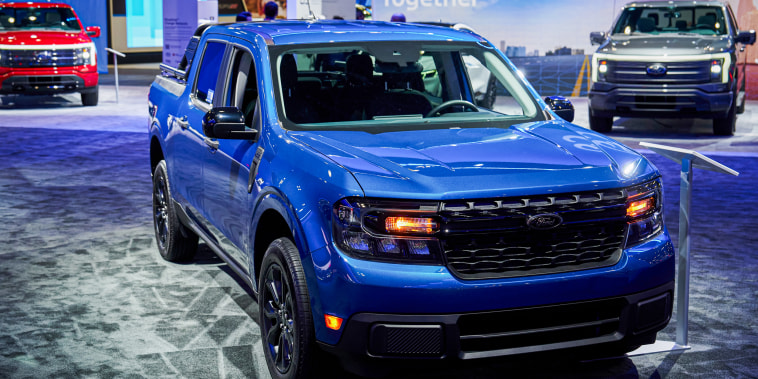Ford To Delay All-Electric SUV to Focus on Offering Hybrid Vehicles Across Its Lineup by 2030
Ford Motor Company made headlines with its strategic decision to delay the launch of its all-electric SUV, redirecting its focus towards providing a comprehensive lineup of hybrid vehicles by the year 2030. This move marks a significant shift in the automotive industry as Ford aims to meet the evolving demands of consumers and stay competitive in the rapidly changing market landscape.
The decision to postpone the release of the all-electric SUV comes as Ford recognizes the growing popularity and demand for hybrid vehicles among consumers. With an increasing emphasis on sustainability and environmental consciousness, hybrid vehicles offer a more accessible and transitional option for consumers looking to make the switch to electric driving.
By prioritizing the development and expansion of its hybrid lineup, Ford aims to cater to a broader range of consumers and provide more options that align with their preferences and needs. This strategic shift reflects Ford’s commitment to sustainability and innovation, as the company seeks to leverage the latest technology and advancements in hybrid vehicle technology to deliver high-performance, fuel-efficient vehicles to its customers.
Furthermore, Ford’s focus on hybrid vehicles aligns with the broader industry trend towards electrification and sustainable mobility solutions. With governments around the world implementing stricter emission regulations and setting ambitious targets for reducing carbon footprints, automakers are under increasing pressure to accelerate the transition to electric and hybrid vehicles.
Ford’s decision to delay the release of its all-electric SUV also highlights the challenges and complexities involved in transitioning towards a fully electric vehicle lineup. While electric vehicles offer significant environmental benefits and long-term cost savings, they also present logistical and infrastructural challenges that need to be addressed to ensure a smooth transition for both manufacturers and consumers.
In light of these considerations, Ford’s strategic shift towards hybrid vehicles demonstrates a pragmatic and customer-centric approach to sustainable mobility. By offering a diverse range of hybrid options across its lineup, Ford aims to make eco-friendly driving more accessible and affordable for consumers, while also laying the groundwork for a future transition towards fully electric vehicles.
As the automotive industry continues to evolve and adapt to changing consumer preferences and regulatory requirements, Ford’s decision to prioritize hybrid vehicles serves as a testament to the company’s commitment to innovation, sustainability, and delivering high-quality, environmentally friendly vehicles to customers around the world. By embracing hybrid technology and leveraging its expertise in vehicle electrification, Ford is poised to lead the charge towards a more sustainable and environmentally conscious future for the automotive industry.


























